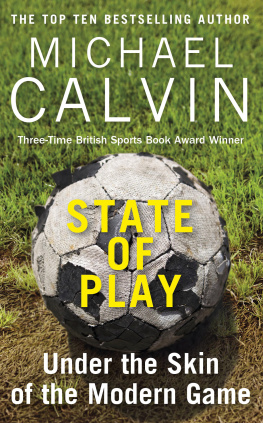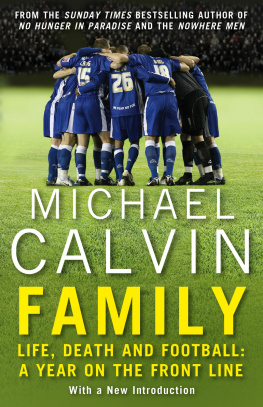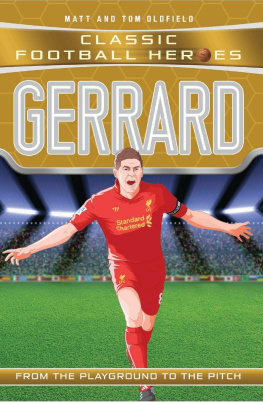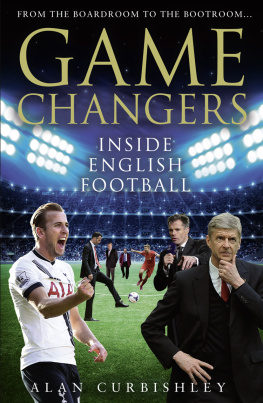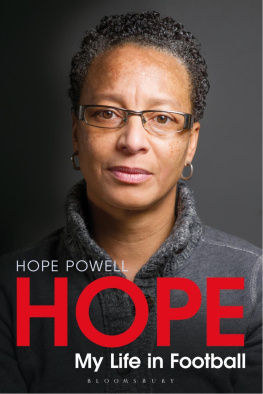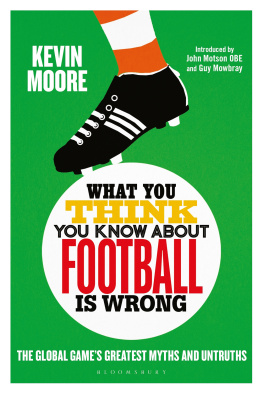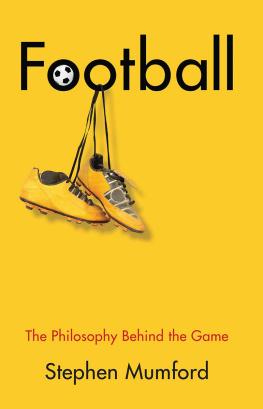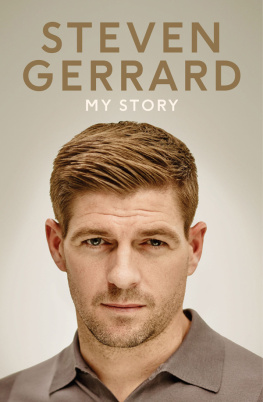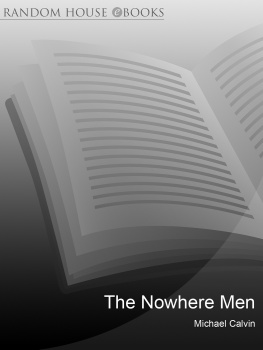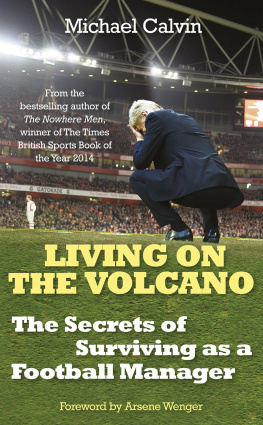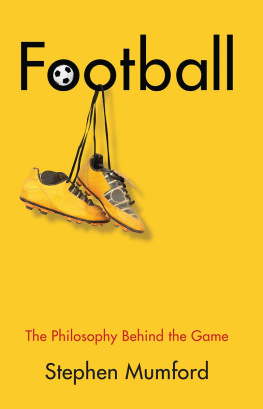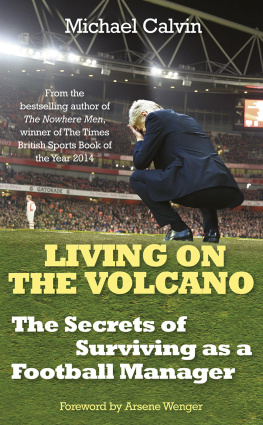Contents
About the Book
*** Award-winning author of The Nowhere Men, Living on the Volcano and No Hunger in Paradise returns with his magnum opus on the state of modern football ***
First he revealed the extraordinary lives of football scouts in The Nowhere Men.
Next he unearthed the pressures on football managers in Living on the Volcano.
Then he chronicled the hardships of young players striving to make it in No Hunger in Paradise.
Now in State of Play, in what marks the pinnacle of a career investigating the human stories of football, award-winning writer Michael Calvin turns his eye to the biggest story of all the game itself.
From mental health to money, concussion to Champions league, fan-owners to oligarchs, womens football to world cups, Calvin gets under the skin of the beautiful game, and reveals why it is truly the game of our lives.
Based on hundreds of hours of interviews with leading figures around the world, from Arsene Wenger to Steven Gerrard, Calvin reveals the winners, the losers, the politics, the pleasure, the hope, and the despair of the worlds most popular sport.
About the Author
Michael Calvin, one of the UKs most accomplished sportswriters, has worked in more than eighty countries, covering every major sporting event, including seven summer Olympic Games and six World Cup finals. He was named Sports Writer of the Year for his despatches as a crew member in a round-the-world yacht race and has twice been named Sports Reporter of the Year.
He is a bestselling author, whose book The Nowhere Men won the Times Sports Book of the Year prize in 2014. He became the first author to receive the award in successive years, when Proud, his collaboration with former Wales and British Lions rugby captain Gareth Thomas, was named Sports Book of the Year in 2015.
In the same year the second book of his football trilogy, Living On The Volcano, was shortlisted for the William Hill Sports Book of the Year prize. No Nonsense, his collaboration with Joey Barton, was nominated for the award in 2016.
For Marielli and Michael
INTRODUCTION
A Fathers Gift
The point about football in Britain is that it is not just a sport people take to, like cricket or tennis or running long distances. It is inherent in the people. It is built into the urban psyche, as much a common experience to our children as are uncles and school. The way we play the game, organise it and reward it reflects the kind of community we are. Arthur Hopcraft
I MISS MY dad. As I write these words, senses heightened by rural stillness and seemingly impenetrable pre-dawn darkness, I summon the mental image of him cradling a newborn baby, Marielli, the only great-grandchild he would know. His life force is palpable. Blue eyes, radiance refracted by thick-lensed glasses, illuminate an open, expressive face.
Charlie Calvin was a big man, in all senses of the word. He passed away, surrounded by the family he nourished literally, spiritually and philosophically, on 23 October 2015, in the council house in which he had lived for more than half a century. We had lost Mum earlier in the year, in the same room that looked out into the back garden, and felt an orphans emptiness.
Our grief was somehow softened by reminders of mortality: his smell, lingering on a recently worn suit; the sight of his shoes, lined up against the bedroom wall; and the sheen on the flat black leather cap he wore daily to Mass. He gave us values, ambition and hopefully a little compassion.
Perhaps the most cherished gift, from a personal point of view, came in the form of two books, scavenged from an empty house he helped secure as a cable jointers mate for the Eastern Electricity Board. They shaped my attitudes and ultimately dictated the course of my life.
The first, with a green mock leather cover inset with gold inscription, was a glossary of the immediate post-war parliament of 1945. As someone whose own father was unemployed for ten years, from the 1929 Stock Market Crash until the outbreak of global hostilities, Dad passed down his belief in the benevolent socialism that led to Nye Bevans National Health Service.
The book contained pen portraits of each of the 640 seats, and a summary of election results. I was in the first flush of adolescent idealism, devoured the detail, and can still recall, unbidden, the balance of power: Attlees Labour, 395 seats; Churchills Conservatives, 215; Mums Liberals, 12; others, 18.
The second book hard-backed, with a wraparound cover photograph of what I later discovered was a First Division match between Leeds United and Everton should, by rights, have been returned to Watford Public Library. It was last lent out on 3 February 1971, nearly three years after its publication. As an adult I still have pangs of guilt at its illicit acceptance, but I was 13 years old, entranced, and kept it as treasure trove.
The Football Man, subtitled People and Passions in Soccer, was written by Arthur Hopcraft, a journalist, novelist and screenwriter, who, in an all too typical example of intellectual snobbery, is lionised more for his TV adaptations of John le Carrs Tinker Tailor Soldier Spy and Charles Dickens Hard Times than his seminal summary of our national sport.
It took me, spellbound, from Old Trafford, where a thin old man with stubble on his chin and a neck like a cockerels sought benediction from a teenaged George Best, to the 1966 World Cup final at Wembley, where Sir Alf Ramseys players were re-imagined as Battle of Britain pilots, setting out to whack the Hun again.
I was never going to be a footballer, despite imaginary winning goals scored, volleying an old leather football against the wall of a prefabricated, flat-roofed block that included an outside toilet, a coal hole and a tool shed. My first, impulsive ambition, on watching grainy footage of the Moon landings in a friends house across the road from our grammar school, had been to be an astronaut.
That was quickly overwhelmed by the romantic notion of becoming a working-class warrior in Westminster, fighting for social justice for the common man. Yet the moment I read the last line of Hopcrafts two-page introduction, lying on the top bunk in the bedroom I shared with three brothers, my path was set.
I am a reporter trying to reach to the heart of what football is.
He detected the games heartbeat, celebrated its humanity. He spoke of football grounds as privileged places of working-class communion. Many years later I would interview some of the books central characters, knights of the realm like Bobby Charlton and Stanley Matthews. I came to appreciate Hopcrafts triumph in distilling heroism, revealing intimate foibles and frailties.
His book is a time capsule, containing items from a long-lost world, in which hope and perspective signified by Earthrise, the photograph of our planet seen in all its ethereal beauty over a lunar horizon, taken by astronaut Bill Anders from Apollo 8 on Christmas Eve, 1968 were neutralised by the horror of generational slaughter in Vietnam.
The year 1968 was one of convulsive sporting, political and societal change. In the UK Conservative politician Enoch Powell delivered his infamous rivers of blood speech, a provocative vision of the consequences of immigration and racial integration. There were riots and revolutions in Europe. Martin Luther King and Robert Kennedy were assassinated in the United States. An African famine, exacerbated by civil war, claimed the lives of millions.

